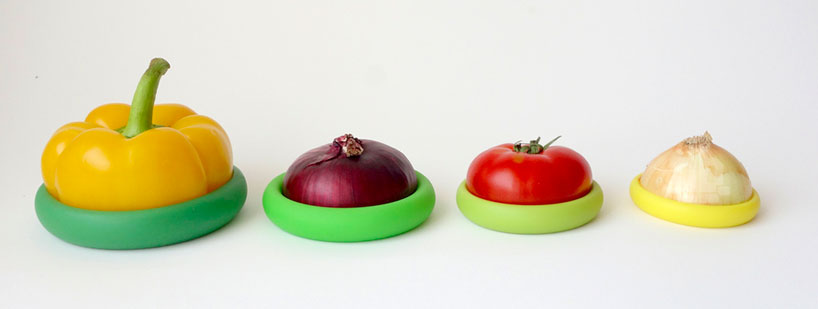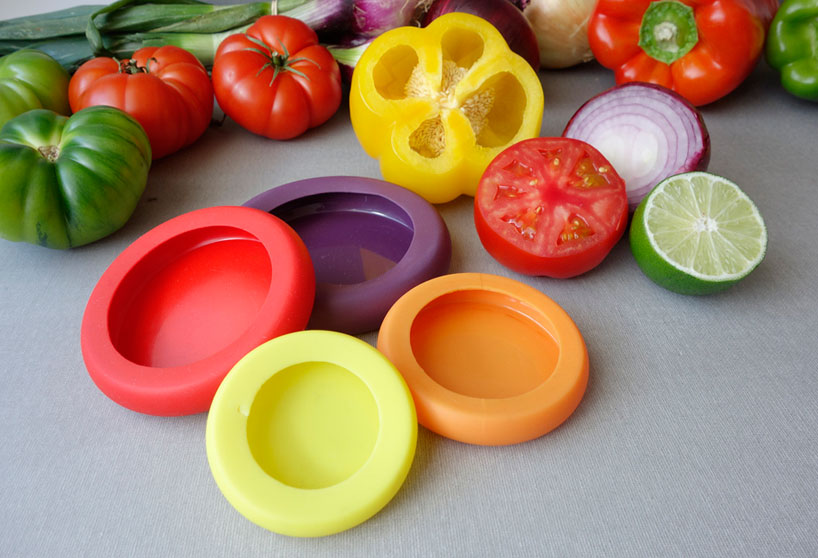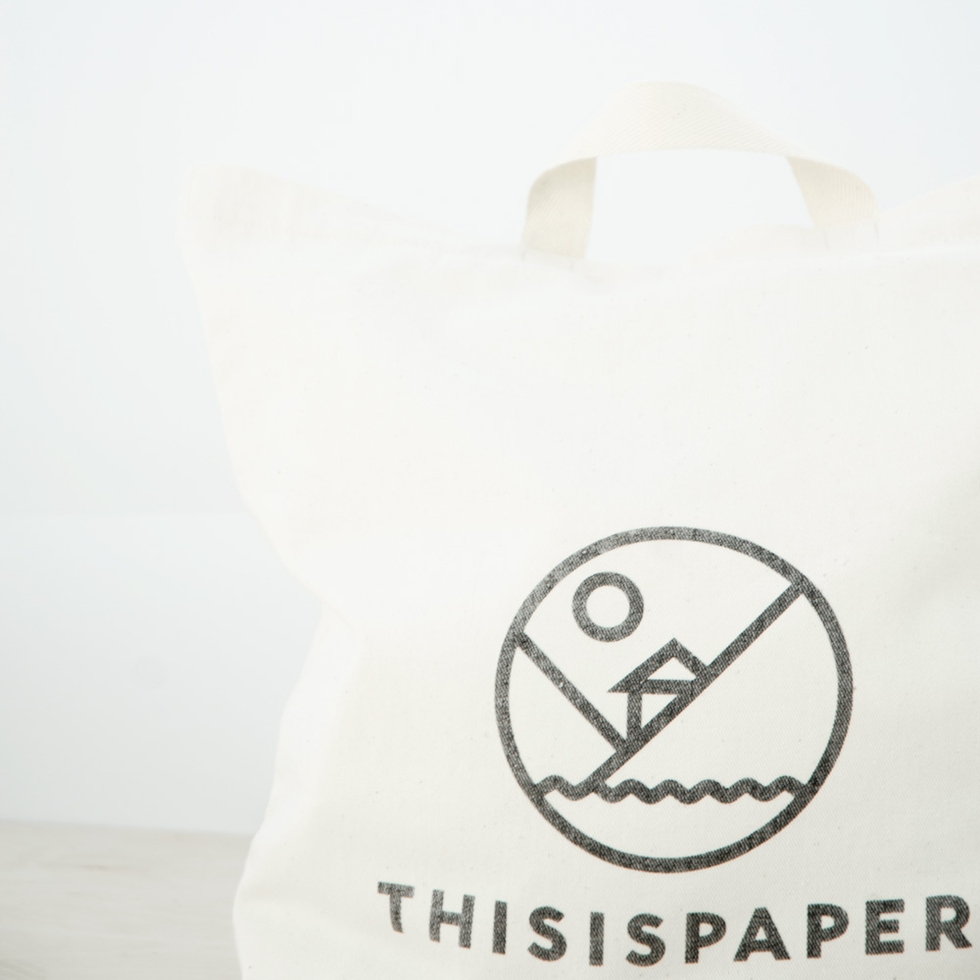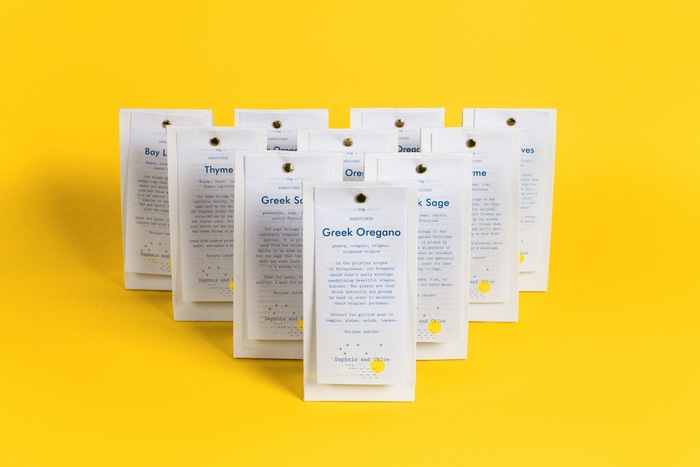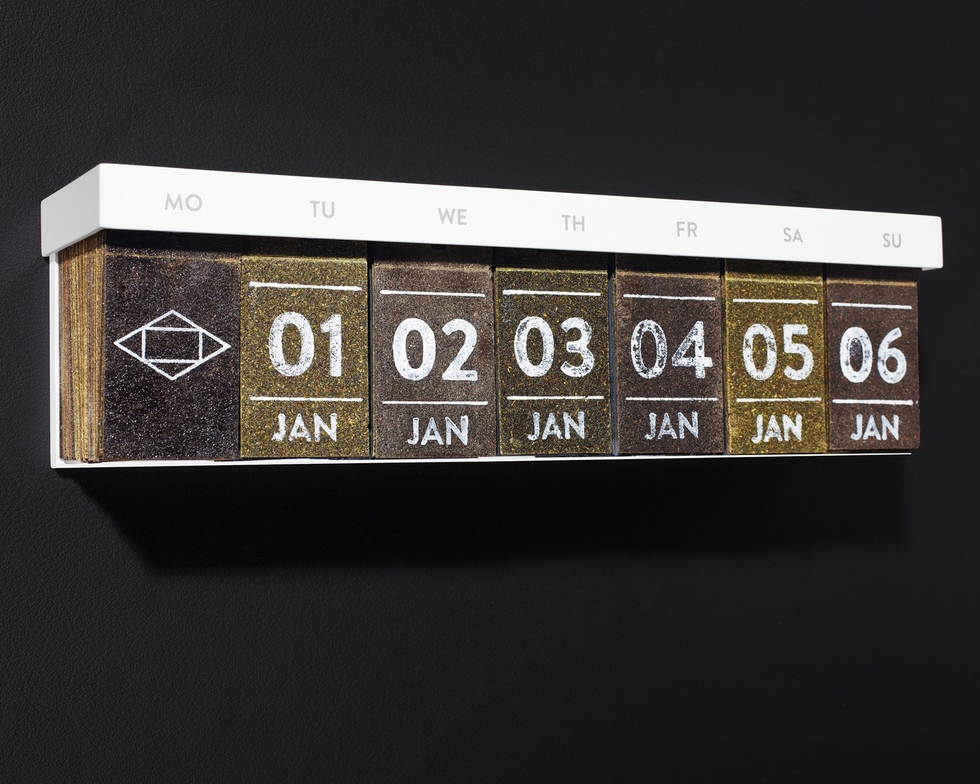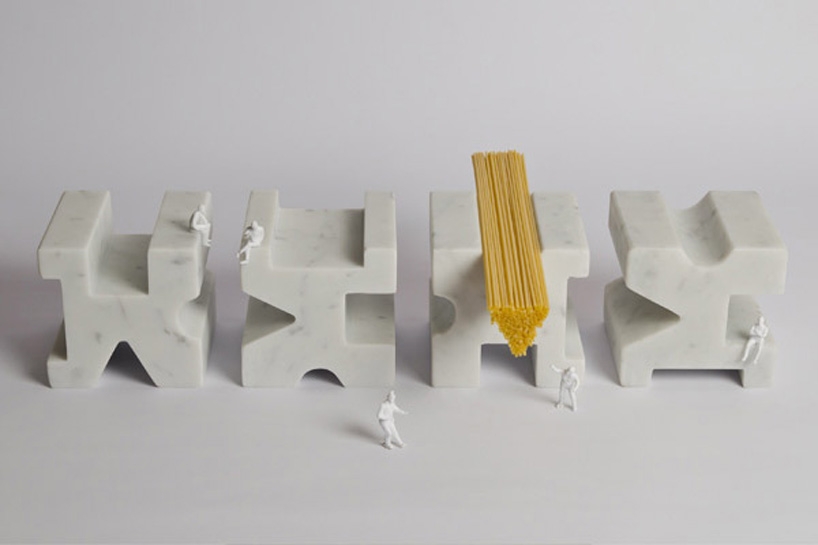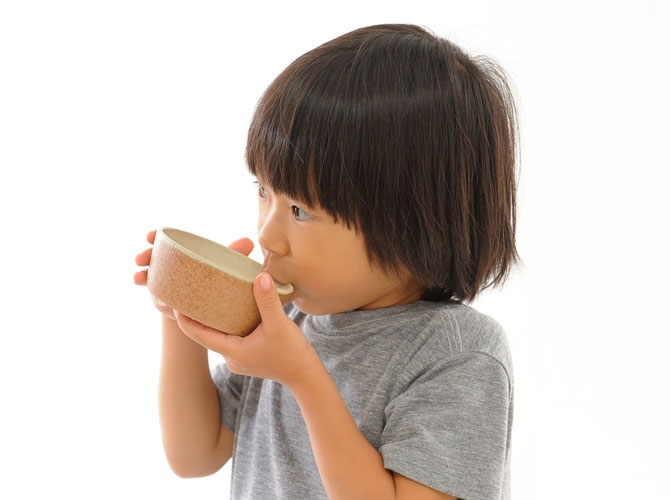Industrial designer Fabio Molinas makes a habit of solving problems using wasted materials and energy. For his OLTU produce storage concept, Molinas designed a "totem" of ceramic and metal containers for storing fresh fruits and vegetables, complete with small water reservoirs in each wall. When the totem is placed on top of a refrigerator, the heat generated by the fridge evaporates the water, which in turn cools the totem and keeps the produce fresh. [via Design Milk]


Food Huggers were designed to be the simplest way to store leftover produce. The silicone caps seal the open end of the fruit or vegetable, while the natural skin keeps the rest fresh. If used correctly there's less food spoilage, no wasted plastic bag, and more fridge space. After the campaign reached its Kickstarter goal a few times over, the designers announced a stretch goal to fund the Avocado Hugger, a modified Food Hugger with a moveable center to account for an avocado's pit. [photos via Designboom]
If you put aside your hang-ups about the morbid pleasure of pouring red wine from an object that treats it like blood and you like a thirsty vampire, Etienne Meneau's Strange Decanters are a beautiful line of glassware. Instead of the short pitcher form, the Strange Decanter comes in two equally gruesome varieties, the heart line which includes "small heart" and "big heart," each with numbered vein systems. For the days that aren't Halloween, you could always say it's meant to be tree roots. [via]
Etienne Meneau makes each carafe by hand, in extremely limited runs.



We read certain magazines online and in print for their taste in visuals and curation of style, so it makes sense in a way that we'd buy from their online shops, too. The latest tasteful mag to launch a shop is two-year-old Thisispaper Magazine. Thisispaper Shop debuted earlier this month, selling goods sourced from sustainable and local manufacturers in Poland or handmade by the creative team at Thisispaper Magazine itself. The shop is carrying a clean and clever range of kitchenware (mugs, jars) and accessories (rucksacks, bags)—all perfectly suited to your no-nonsense minimalist household. The Thisispaper team says the impulse to start the shop comes from "the need to provide our audience with a way to surround themselves with objects that combine beauty and sustainability and are used in day-to-day activities." And they've stuck well to their informal motto: "Simplicity is king in everything we do. Fashion isn't."
We've culled some of our favorite debut Thisispaper Shop items in the post below.
Start shopping at Thisisipapershop.com

Handheld drills
Scissors
Pure Mug
Rucksack in Ecru
Honey dripper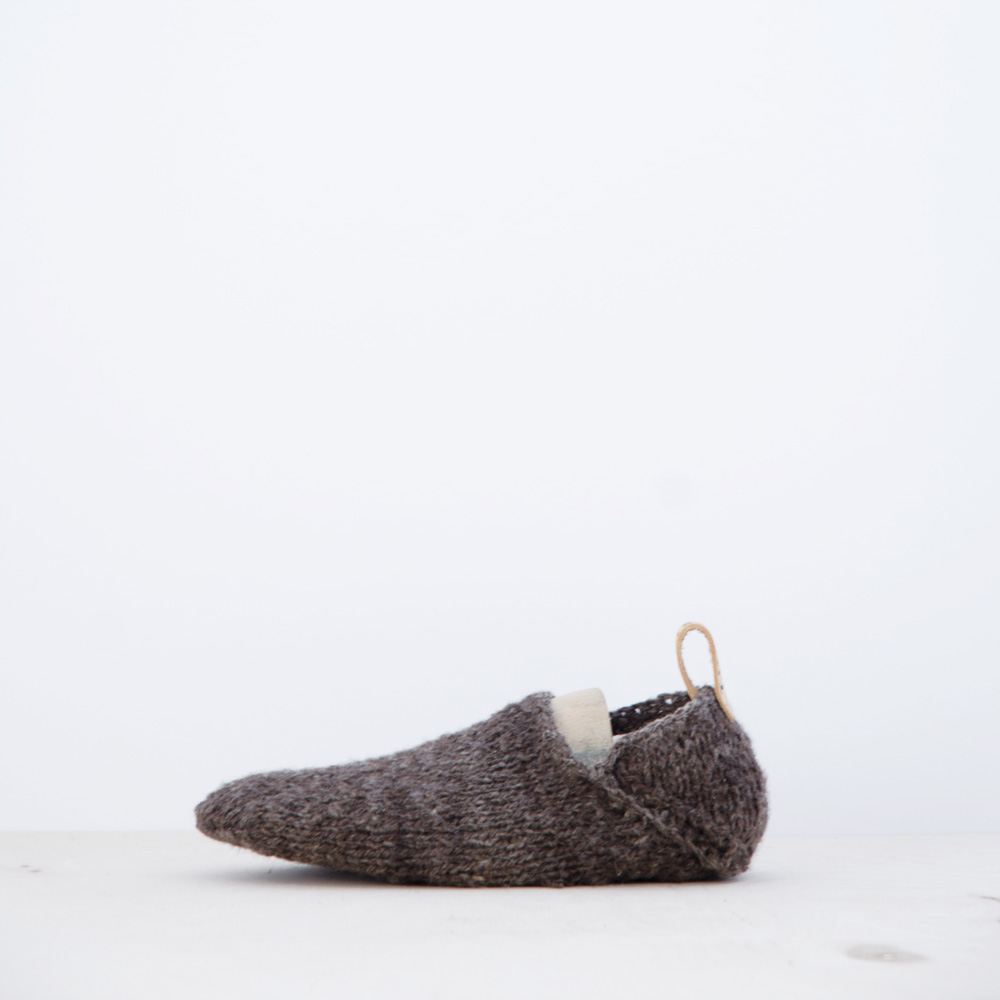
Slippers in brown
Single strap pedal clip Walnut pan
Walnut pan Butter knife
Butter knife
When Evangelia Koutsovoulou moved from rural Greece to Milan, Italy her cooking suffered. She realized city cooks didn't have access to the same herbs founds in the mediterranean country side, so she launched a Kickstarter campaign to start distributing fresher Sage, Bay Leaves, Oregano, and Thyme.
But because she's not the biggest fan of cameras, and Kickstarter campaigns require a video element, she commissioned friends to tell the story of her two-year search for the best herbs in a simple but impressive animated short. Koutsovoulou also designed a strong branding identity for the herbs: each package is shipped in a small foldable bag with a cleanly designed name and information card affixed to the front. A tiny yellow sun at the bottom of the card contrasts the blue sans serif type, and along with the market-style bag, connotes freshness.
Pledge some money and become an official "Oregano Tester"

As a way to thank its partners for a year of business, the Hälssen & Lyon tea company collaborated with the Kolle Rebbe agency to create a brewable calendar made entirely out of pressed tea. Each day of 2013 can be ripped off and made into a single cup of tea without the waste of a teabag. Unfortunately the calendars aren't for sale, though they would be incredibly useful hanging in the kitchen of a daily tea drinker.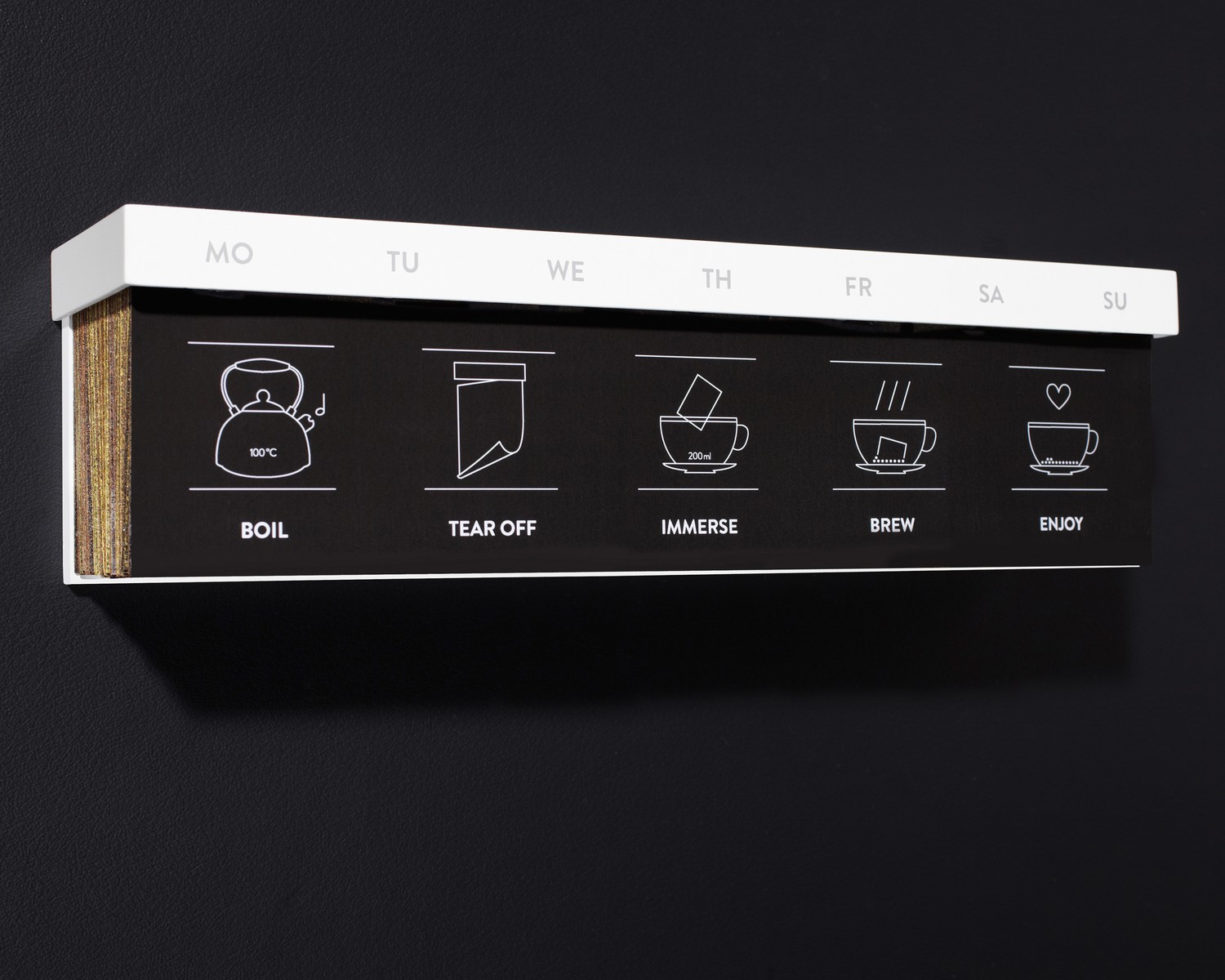


Sure, you could measure pasta without Studio Lievito's handsome marble Spaghetti Meter, but that's incredibly risky and we wouldn't recommend it. The Meter is dead simple to use: the carved shapes on each side of the block hold just enough pasta for one, two, three, or four people. Simply rotate the meter to the correct number of people you're feeding, fill with spaghetti or whichever long pasta you prefer, and cook. [via It's Nice That]
The Spaghetti Meter debuted during Milan Design Week. Check out more of Studio Lievito's kitchen wares, like hand-blown glass pasta holders and marble utensils, online.

Bottle openers aren't complex; they're some of the cruder gadgets in the kitchen drawer. But turns out they can be improved upon. Designer Brendan Ravenhill combined the rustic appeal and comfort of a piece of finished wood with the addition of a bent nail and two magnets to make the biggest change to the bottle opener since the addition of the keychain. The first magnet keeps the opener on the fridge door, the nail pries the bottle cap off, and the second magnet keeps the cap in place for easy disposal.
The Japanese housewares brand aeru is always looking for ways to make the lives of young families easier. Its latest product, a collaboration with the designers at Nosinger, is a line of handmade bowls that help young children learn how to eat on their own with fewer messy spills. The design is simple: starting with traditional Japanese flatware materials, a small ledge is built as a center ring in the bowl in order to help the eater-in-training push food back onto a utensil before taking a bite. According to Spoon-Tamago, the bowls come in three varieties: Yamanaka Lacquer, Ootani-yaki pottery, and Tobe-yaki porcelain, and depending on the materials, a set of three costs between $45 and $100.
If you're not lucky enough to live in the shadow of a snow-capped mountain range in Switzerland or the American West, a new line of knives was designed just for you. The Panorama Knife company wanted to put mountain ranges in reach of those of us challenged by geography or free time to travel. Their solution was to design a serrated bread knife using the outline of famous European mountain ranges, complete with the names and elevations of every mountain they include.
The knives can be ordered with a handle made from recycled Indian rosewood, leftover from furniture manufacturing, or simple plastic. But if you're not convinced European mountain ranges make the best knife blades, look no further than this demo video to see how well these work on a few different, but equally delicious looking, breads.


